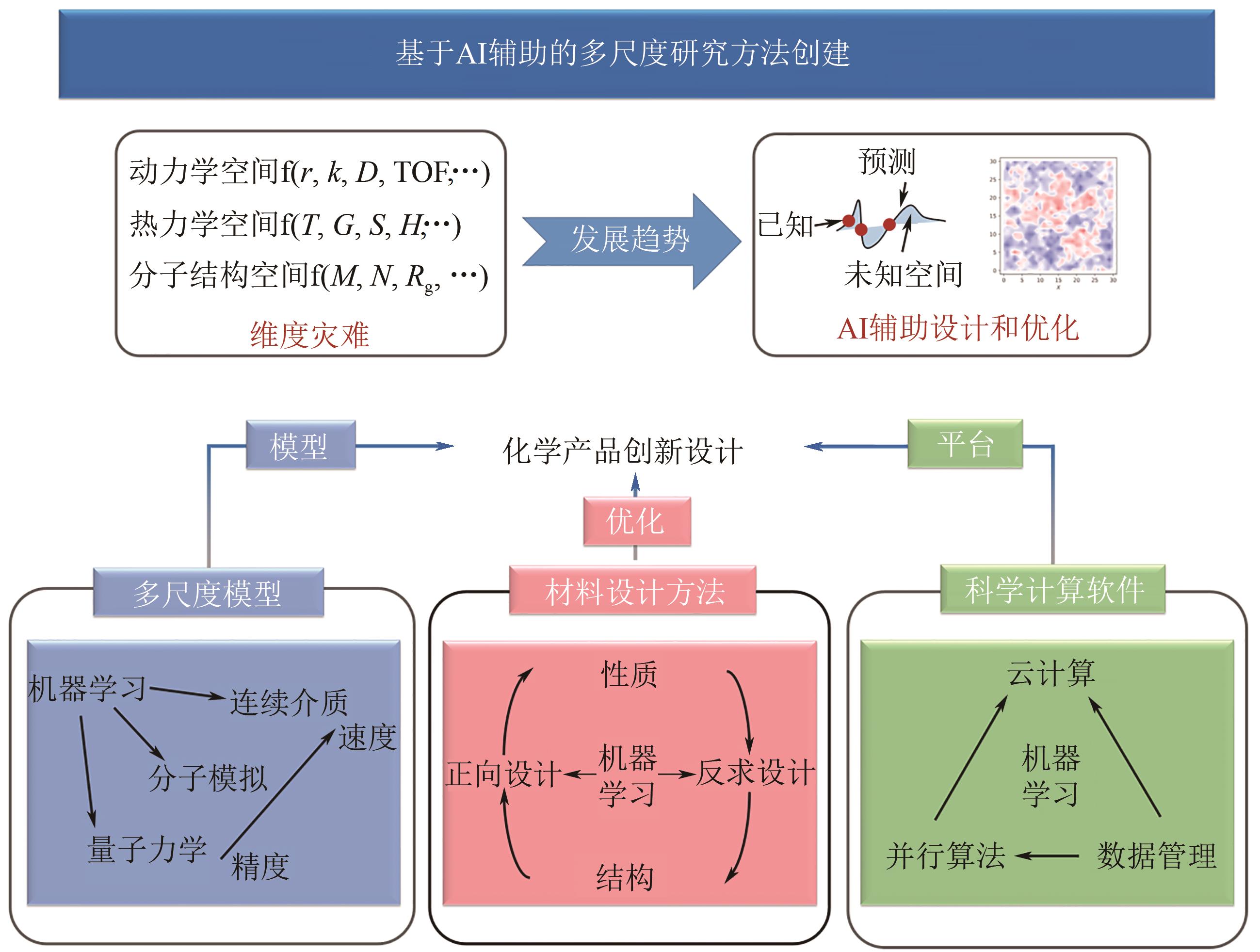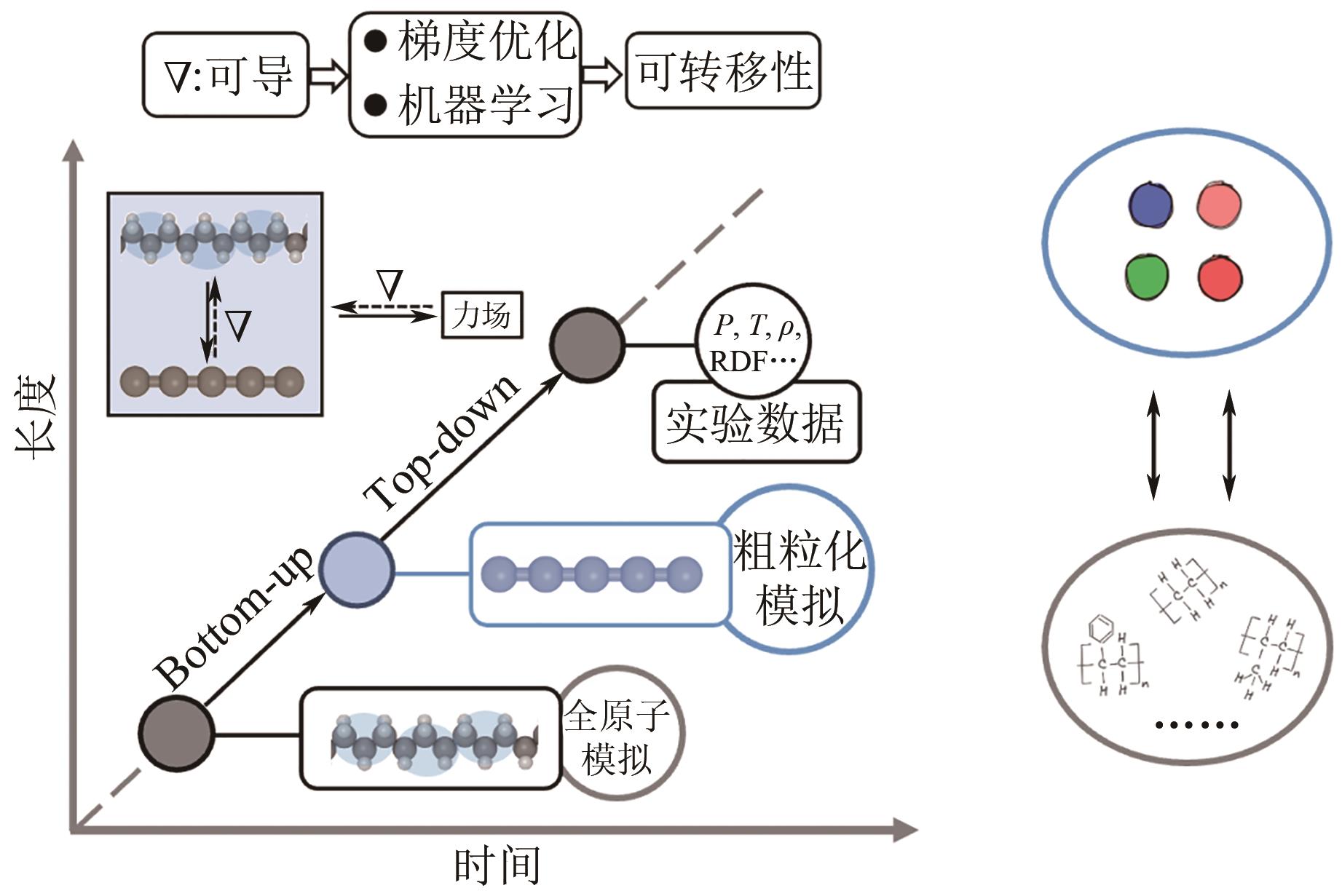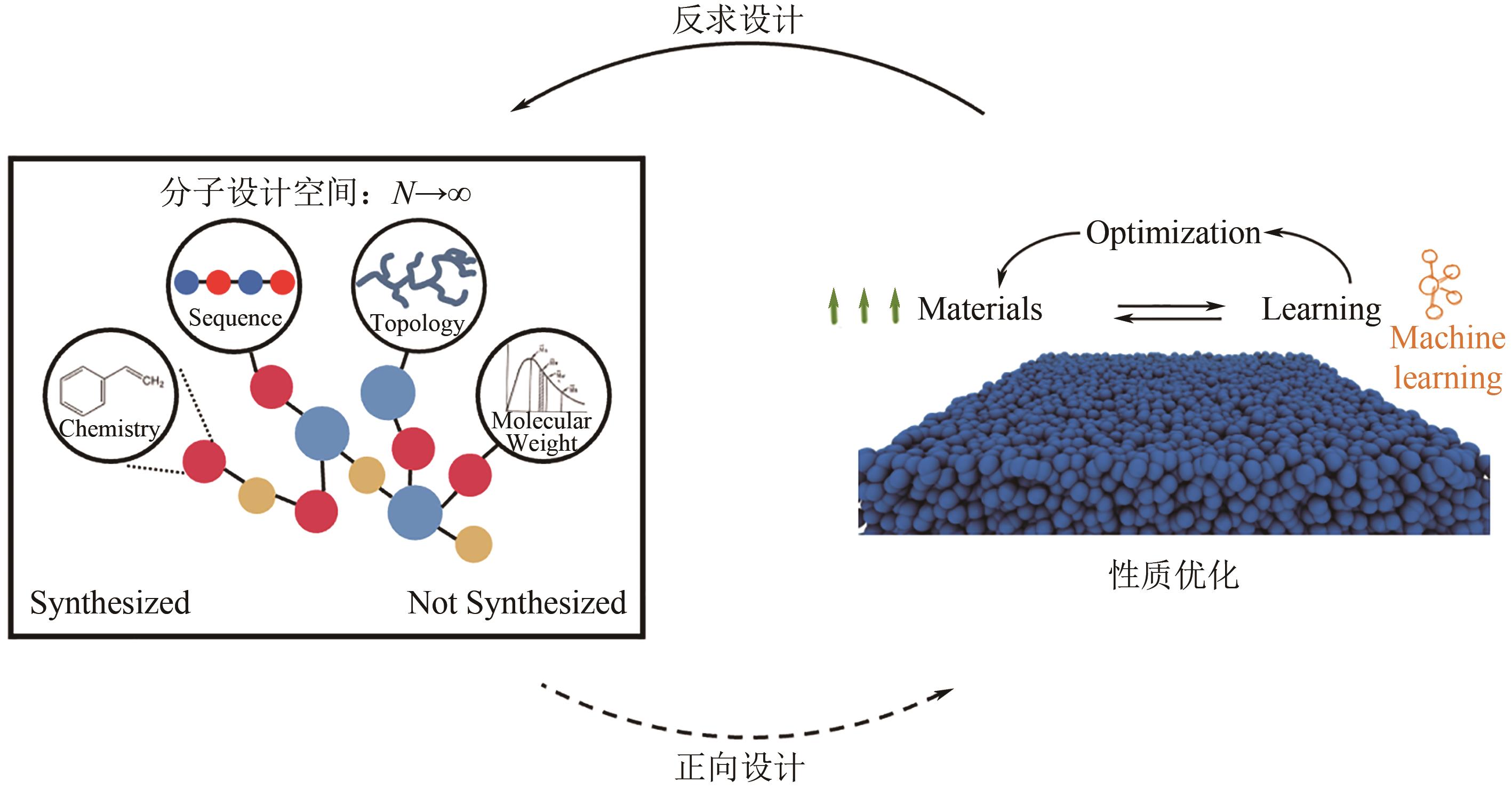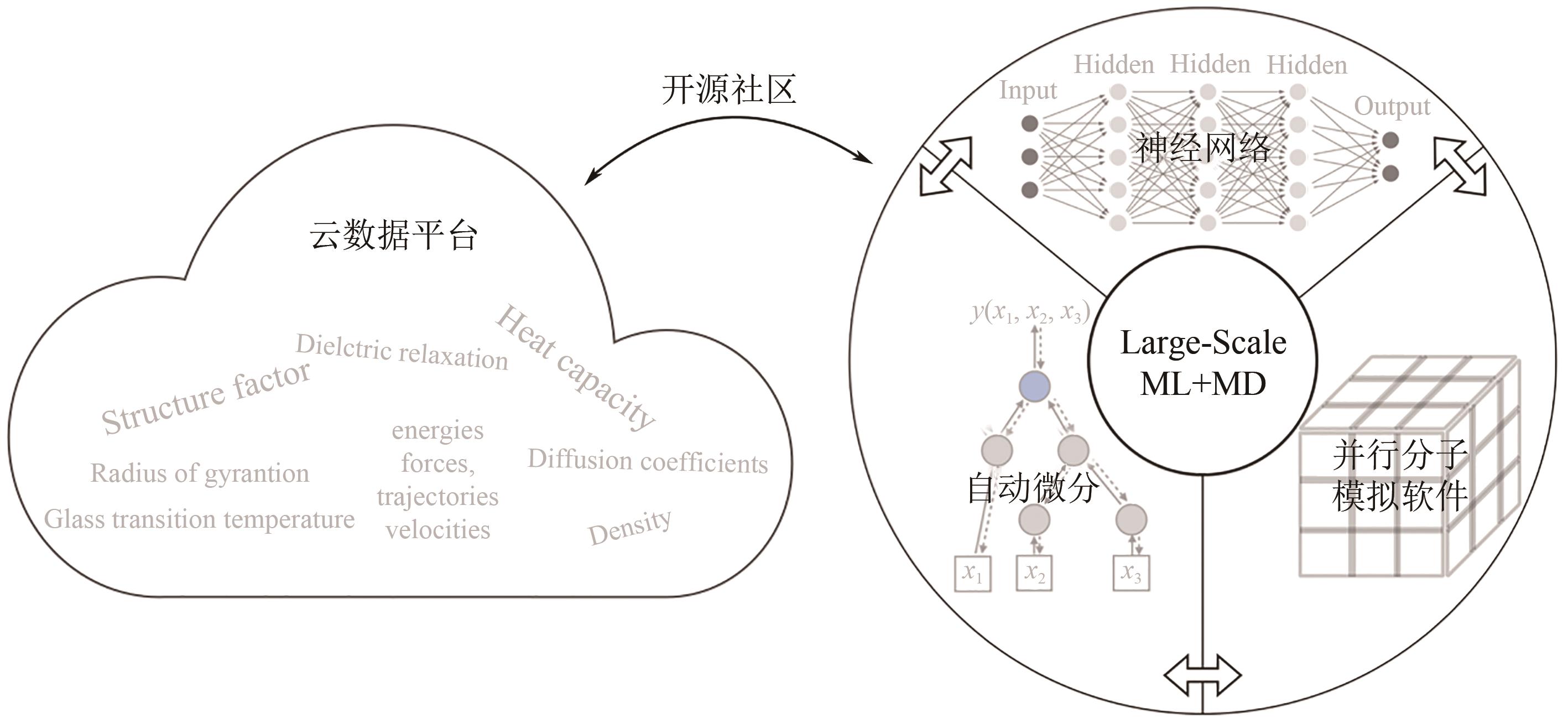化工进展 ›› 2023, Vol. 42 ›› Issue (8): 3910-3916.DOI: 10.16085/j.issn.1000-6613.2023-0811
人工智能驱动化学品创新设计的实践与展望
吴正浩1,2( ), 周天航3,4(
), 周天航3,4( ), 蓝兴英3,4, 徐春明3,4
), 蓝兴英3,4, 徐春明3,4
- 1.美国西北大学土木与环境工程系,伊利诺伊州 埃文斯顿 60208-3109
2.西交利物浦大学化学系,江苏 苏州 215123
3.中国石油大学(北京)碳中和未来技术学院,北京 102249
4.中国石油大学(北京)重质油国家重点实验室,北京 102249
AI-driven innovative design of chemicals in practice and perspective
WU Zhenghao1,2( ), ZHOU Tianhang3,4(
), ZHOU Tianhang3,4( ), LAN Xingying3,4, XU Chunming3,4
), LAN Xingying3,4, XU Chunming3,4
- 1.Department of Civil and Environmental Engineering, Northwestern University, 2145 Sheridan Road, Evanston, Illinois 60208-3109, United States
2.Department of Chemistry, Xi’an Jiaotong-Liverpool University, Suzhou 215123, Jiangsu, China
3.College of Carbon Neutrality Future Technology, China University of Petroleum (Beijing), Beijing 102249, China
4.State Key Laboratory of Heavy Oil Processing, China University of Petroleum (Beijing), Beijing 102249, China
摘要:
改进化学品研发模式,缩短化学品从发现到应用的时间是化工行业中所有科学研究者和产业人员的最终目标。本文提出:化学品设计是一个涉及多组分、多尺度和多物理场的复杂过程,现有的实验研究模式难以深入高效地揭示相关的物理化学机制;因此,需要借助多尺度计算机模拟技术,从微观分子层面的化学结构出发,耦合多种模拟方法来预测宏观产品的性能;同时,随着计算机算力的提升,将基于物化机制的多尺度计算机模拟方法与数据驱动的人工智能相结合的研发模式,具有广阔的应用前景,例如基于高精度多尺度模拟数据训练的机器学习模型能够指数级地缩短化学品结构-性质的预测。尽管如此,由于广阔的分子结构空间和复杂的分子作用力关系,新型化学品研发面临着众多独特的挑战。如何借助人工智能提高现有模拟技术的准确性与速度,更好地理解和预测材料的性质和特点,并将人工智能引入材料设计算法,以实现更高效地探索和优化复杂的化工设计参数,使其更适应实际需求,是化学品设计研究的前沿方向。本文从多尺度模拟、材料设计框架和科学计算软件开发三个方面,分析讨论了人工智能驱动化学品创新设计的发展现状,阐述了人工智能技术在实现化学品设计创新途径中所起的重要作用,并对人工智能驱动在化学品设计的研究方向和发展目标进行了展望,以助力实现新型化学品的设计,为我国化工产业发展提供坚实的技术支撑。
中图分类号:



